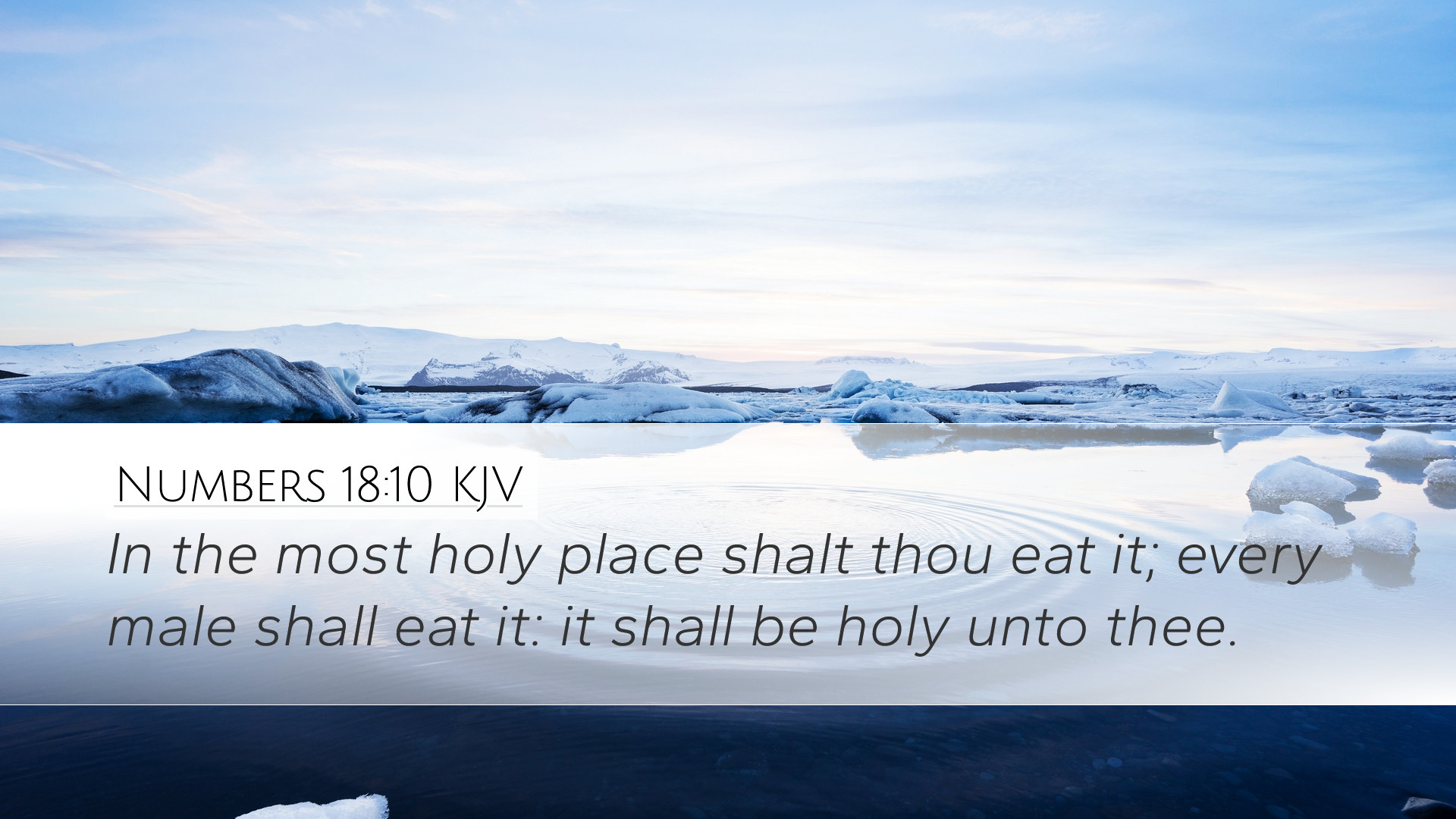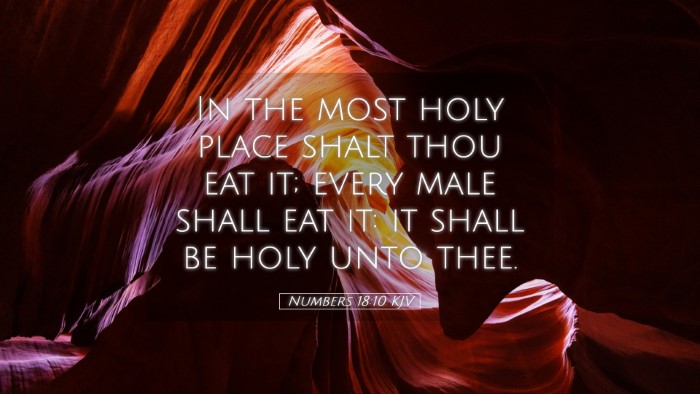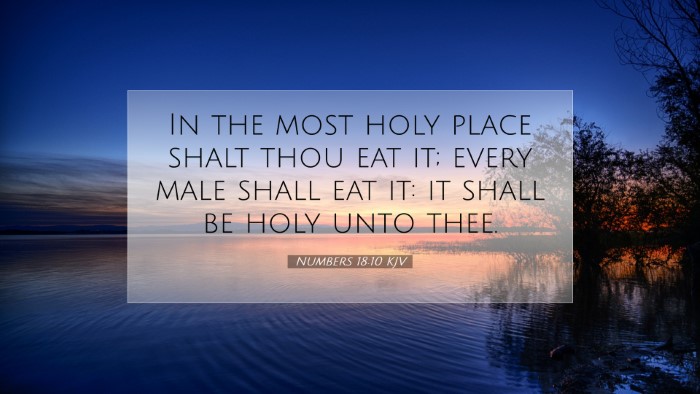Commentary on Numbers 18:10
Verse: "And thou shalt eat it in the holy place: because it is thy due, and thy sons' due, of the sacrifices of the Lord made by fire: for so I am commanded."
Introduction
Numbers 18:10 presents a directive from God concerning the priests and Levites regarding the consumption of the offerings made by fire. This passage highlights the sacred nature of priestly duties and the provision made for the sustenance of those who serve in the temple. By examining this verse through the lens of public domain commentaries, we can glean profound insights into its significance both in its historical context and in its application for contemporary believers.
Exegesis and Historical Context
The book of Numbers is situated in the wilderness wanderings of the Israelites and details the instructions given by God for the organization of the Levites and the priesthood. The focus on the priestly responsibilities underscores a prevailing theme of holiness and service.
Matthews Henry's Commentary emphasizes:
- The Priestly Claim: The priests were entitled to partake of the offerings as a means of sustenance. This claim underpins the notion that service to God warrants provision from His offerings.
- The Spiritual Significance: Eating these sacrifices in a holy place was not merely a physical act but an acknowledgment of the relationship between the priests and God, indicating that they were set apart for divine service.
Albert Barnes offers insights into:
- The Nature of the Offerings: The offerings described were consumed in the holy place, symbolizing a sacred communion between the offerer and the priest, emphasizing the priesthood's role as intercessors.
- Communal Aspect: The priest’s portion symbolizes the acknowledgment of God’s presence among His people and their continuous need for His grace and provision.
Theological Significance
The directives given in Numbers 18:10 carry essential theological implications that resonate throughout scripture. The consumption of the holy offerings reflects the nature of sacrificial worship, indicating a mutual relationship between God, the human community, and the leaders appointed for spiritual guidance.
Adam Clarke elaborates on the implications of this passage:
- Holiness of Service: This directive reinforces the idea that those who serve in holy capacity must uphold purity and reverence in their duties.
- Dependence on Divine Provision: The priest's sustenance derived from the offerings illustrates a deep reliance on God’s provision, suggesting that ministry is sustained by divine grace.
Application for Ministries Today
For modern pastors and church leaders, Numbers 18:10 not only reflects the importance of their role but also challenges them to consider the integrity of their ministry. As they partake in God’s provisions, they are reminded of their obligation to foster holiness among their congregations.
Key Applications Include:
- Commitment to Holiness: Ministers are called to maintain personal and communal holiness, recognizing the sacred responsibility of their roles.
- Community Leadership: Just as the Levites and priests were sustained by the offerings of the people, today’s church leaders must build supportive relationships within the congregation, ensuring shared involvement in spiritual growth.
- Service Orientation: The ministry should focus on serving both God and His people, fostering an environment where worship and service are intertwined.
Conclusion
Numbers 18:10 encapsulates vital truths about God’s provision and the responsibilities of those He calls to serve. It speaks to the profound interconnection of holiness, service, and community that transcends time. For pastors, students, theologians, and Bible scholars, this verse serves as a reminder of the divine expectations associated with spiritual leadership and the unconditional provision granted by God to sustain it.


